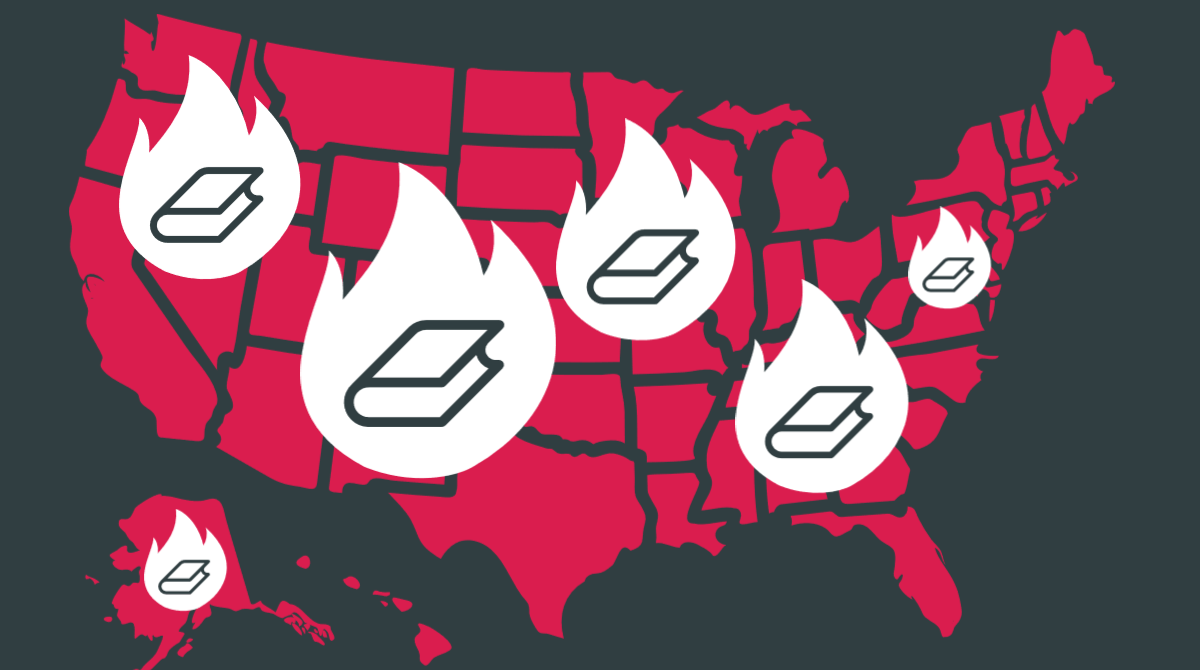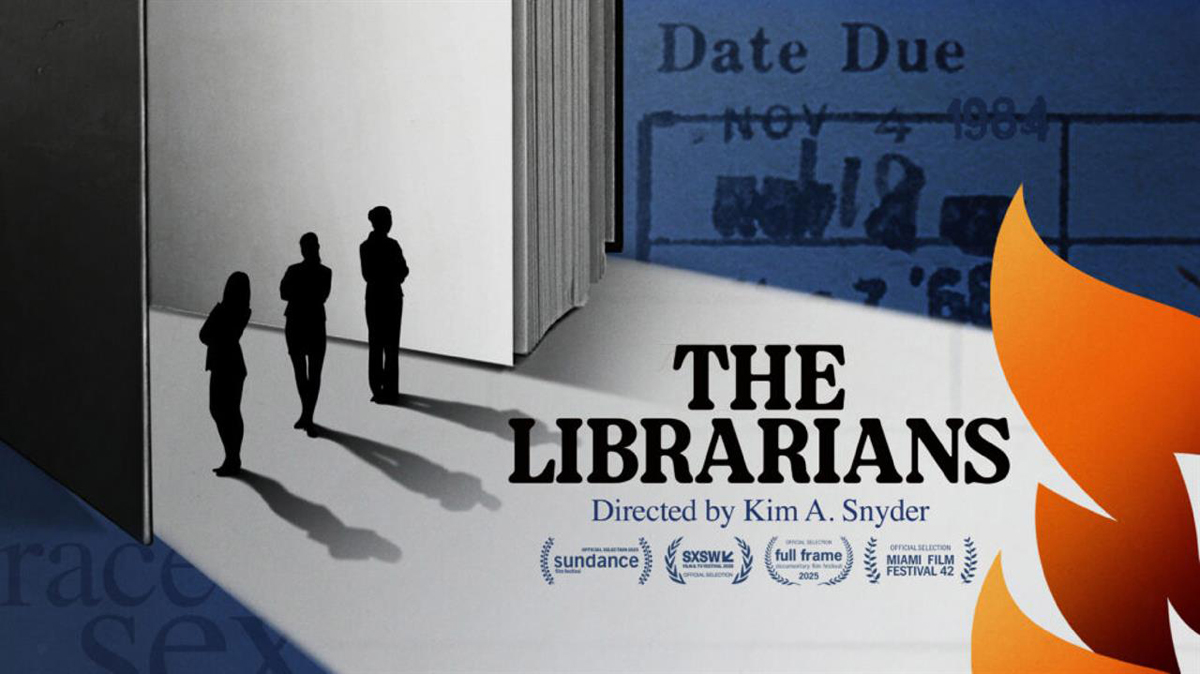Libraries and schools across the country are experiencing unprecedented levels of attempts to ban or remove books from their shelves. I Love Libraries will continue to raise awareness by highlighting attempts to censor library materials, as well as efforts by librarians, parents, students, and concerned citizens to push back against them. This report includes news from Tennessee and Texas, as well as looks at two authors who are standing up against book censorship.
Become a Supporter
George M. Johnson speaks out on anniversary of ‘All Boys Aren’t Blue’ release
George M. Johnson’s novel “All Boys Aren’t Blue” has become the most banned book in the country since its release five years ago, according to the American Library Association’s annual “State of America’s Libraries 2024” report. To mark the anniversary, Johnson recently posted a video to Bluesky urging marginalized communities to continue speaking their truth.
“Understanding who my ancestors were, understanding that we were people who were denied the ability to read and write, it makes this fight even more important as I move forward in it,” Johnson said. “We’ve always been looked at as the inferior race. They have always tried to erase our stories, erase our history, steal our culture, steal all of the things that make us who we are today. But one thing that I do know is that people don’t die if you continue to tell their story. And that’s why I do the work that I do today.”
Happy 5 year anniversary to All Boys Aren’t Blue. Now the most challenged book in America. The fight continues 💗💕💗
— George M Johnson Garçon (@iamgmjohnson.bsky.social) April 28, 2025 at 1:54 PM
[image or embed]
Texas students say K-12 DEI ban and other anti-LGBTQ+ bills threaten their safety, voice, and mental health
LGBTQ+ students and their allies in Texas worry the proposed DEI ban on public schools and the other state bills threaten their mental health and sense of safety in schools, reports The Texas Tribune. They are concerned the legislation could silence supportive teachers, dismantle safe spaces, lead to overenforcement, and prevent honest conversations about identity.
One such bill, Senate Bill 13, would give school boards and parents more control over what books can be put in school libraries, as well as ban books that have “indecent content or profane content.” Anti-censorship advocates say the bill could lead to the removal of books featuring gender and sexuality content from school libraries.
Elisha Rurka, president of Dignity For All Texas Students, said there’s no need to ban LGBTQ+ books because students are already aware of different sexual preferences and gender identities, even if those topics are being limited in school libraries and classrooms.
“There’s always been a process to challenge a book. But it was so rare because parents trusted the librarians,” Rurka said. “There isn’t a lot of harmful content. But now the mere existence of a queer character is seen as a threat.”
Rurka warned that these bills could lead to widespread self-censorship among school staff, beyond what the laws require.
“The laws do enough damage by themselves, but the teachers, the administrators, their jobs are hard enough already. It’s a lot easier to just err on the side of caution,” Rurka said. “Removing even the representation of the LGBTQ experience…doesn’t even fit with what our current country’s laws and values are supposed to be.”
Cameron Samuels, executive director of Students Engaged in Advancing Texas, a youth-led movement that advocates for students’ rights, warned that the potential impact of the bills could extend beyond LGBTQ+ youth.
“We’re going to grow up feeling that race and racism are topics that we don’t touch, and we only allow racism to grow,” said Samuels. “We grow up not being able to question authority, to dissent, which is crucial to a healthy democracy. We won’t have the outlets for advocating not only for ourselves, but for others, when the predominant narrative is that the government is right, that oppression is the way it has to be.”
U.S. Naval Academy cancels author’s lecture that would have criticized book bans
The U.S. Naval Academy canceled a lecture that an author was scheduled to give to students after he refused to remove slides from his planned presentation that criticized the academy’s decision to remove nearly 400 books from its main library, reports CNN.
Author Ryan Holiday, a writer and philosopher who has lectured at the academy more than half a dozen times since 2019, told CNN that he was invited to give a lecture about wisdom to midshipmen on April 14. An hour before he was scheduled to give his talk last, Holiday said he received a call from the school asking him to refrain from mentioning the academy’s decision earlier this month to remove 381 books from the shelves of its Nimitz Library.
“I said I couldn’t do that,” Holiday recalled. “I couldn’t have spoken in front of these midshipmen about courage and about doing the right thing, and then remove, I think, a very reasonable objection to a very egregious concept.”
The U.S. Naval Academy removed the books in an attempt to comply with President Donald Trump’s executive order in January mandating the removal of all “diversity, equity, and inclusion” content from K-12 schools, which Secretary of Defense Pete Hegseth later said also applied to military academies. The banned books include Maya Angelou’s “I Know Why the Caged Bird Sings,” Janet Jacobs’ “Memorializing the Holocaust,” and hundreds of other books dealing with issues of gender and racism.
Three Tennessee families file suit to stop book bans in their county
Three families in Tennessee have filed a lawsuit against a local school system to stop the restriction of books from school libraries in the county, reports WKRN News.
The Rutherford County families, along with PEN America, filed the lawsuit against Rutherford County School (RCS) system. At issue is the banning or restricting of more than 140 titles in Rutherford County Schools. According to the complaint, RCS’s “book banning began in the spring of 2024 without any public meeting or vote of the Rutherford County Schools Board of Education.”
Per the complaint, RCS removed the books because school officials felt they fell outside the definition of “age appropriate” materials under the Age Appropriate Materials Act of 2022, which requires school districts to pass policies as to how schools would ensure their library collections contain “age appropriate” materials. When RCS adopted its own policy in compliance with state law, the complaint states it included a provision that doesn’t use a test for determining whether a book is “appropriate” in school. Instead, it allows for a book to be immediately removed.
The complaint also states RCS board members overly relied on a website with ties to the conservative group Moms for Liberty as their basis for determining whether a title is appropriate for school libraries and acted upon books they had never read before.
The families, who are anonymous in the complaint, contend many of the books restricted or removed from shelves aren’t obscene and that several titles are “serious works of literature that contain literary, artistic, political, and/or scientific value” for students.
Books removed from RCS school library shelves include “Speak” by Laurie Halse Anderson, “Thirteen Reasons Why” by Jay Asher, “Forever…” by Judy Blume, “Looking for Alaska” by John Green, “Red, White, and Royal Blue” by Casey McQuiston, “Wicked: The Life and Times of the Wicked Witch of the West” by Gregory Maguire, and several by author Ellen Hopkins, among others.
Take action
Alarmed by the escalating attempts to censor books? Here are five steps you can take now to protect the freedom to read.
- Follow news and social media in your community and state to keep apprised of organizations working to censor library or school materials.
- Show up for library workers at school or library board meetings and speak as a library advocate and community stakeholder who supports a parent’s right to restrict reading materials for their own child but not for all
- Help provide a safety net for library professionals as they defend intellectual freedom in their communities by giving to the LeRoy C. Merritt Humanitarian Fund.
- Educate friends, neighbors, and family members about censorship and how it harms communities. Share information from Banned Books Week.
- Join the Unite Against Book Bans movement and visit our Fight Censorship page to learn what you can do to defend the freedom to read in your community.
Subscribe to the I Love Libraries newsletter! You’ll get monthly updates on library news, advocacy updates, book interviews, book info, and more!
 Your support of the American Library Association makes a difference in libraries across the U.S. Join us and become an ALA supporter today.
Your support of the American Library Association makes a difference in libraries across the U.S. Join us and become an ALA supporter today.




